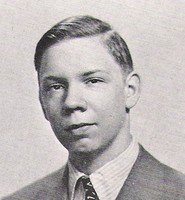|
 By Jerry Vondas By Jerry Vondas
PITTSBURGH TRIBUNE-REVIEW
Friday, December 2, 2005
While Walter Kidney was renowned as one of the foremost architectural historians in the country, in his adoptive city of Pittsburgh he was known for his philanthropy and humility.
"Walter knew the breadth and range of the history of architecture worldwide," said Arthur Ziegler, president of the Pittsburgh History & Landmarks Foundation. "Walter also knew Pittsburgh's buildings in great detail, and could place their significance against that sweeping backdrop."
Walter C. Kidney, of Mt. Washington, an architectural historian with the foundation, died Thursday, Dec. 1, 2005, of sepsis at UPMC Presbyterian hospital, Oakland. He was 73.
Ziegler said Mr. Kidney had the ability to analyze and summarize buildings in an erudite, yet witty way.
Jack Miller, director of gift planning for the landmarks foundation, recalled how Mr. Kidney's expertise touched a broad range of people.
"Walter received a call from a woman who wanted to know what kind of windows she should place in a house that Walter figured had no historical significance."
Miller also recalled how Mr. Kidney, who lived on Mt. Washington, would ride the incline every morning to Station Square to the foundation offices.
"There was nothing pretentious about the man who wrote 20 books that are considered the bibles of historical architecture," Miller said. "(Probably) very few people on the incline realized who he was."
The summers he spent at his grandmother's rooming house in Oakland helped to spark his interest in architecture. Mr. Kidney frequently said that the eclectic architecture of the neighborhood -- including Greek Revival (Mellon Institute and the Masonic Temple) and the neo-gothic (the Cathedral of Learning, University of Pittsburgh) -- was inspiring.
Born in Johnstown, Cambria County, and raised in Philadelphia, Mr. Kidney was an only child. His father taught both English and Latin.
After graduating with a degree in philosophy from Haverford College in Delaware County, Mr. Kidney worked at Random House in New York City where he wrote definitions for the Random House dictionary.
In the early 1950s, James D. Van Trump -- who, along with Arthur Ziegler, established the Pittsburgh History & Landmarks Foundation -- observed Mr. Kidney's diligent research at the Carnegie Library in Oakland.
"Jamie said that there seemed to be a very interesting person doing research in the art, music and Pennsylvania rooms of the Carnegie," Ziegler recalled. A subsequent meeting with Mr. Kidney began a long-lasting personal and professional relationship.
"Through the years, Jamie was so impressed with Walter's expertise that Walter was the only one that Jamie would entrust his manuscripts for editing," Ziegler said.
Throughout his career, Mr. Kidney published 20 books, beginning with "The Architecture of Choice: Eclecticism in America 1880-1930," published in 1974.
One of his recent publications, "Hornbostel in Pittsburgh," documents the more than 70 projects that Henry Hornbostel designed in the Pittsburgh area.
Although Mr. Kidney had been freelancing for the landmarks foundation for a number of years, he decided in 1980 that it was time to join the staff.
In the ensuing years, Mr. Kidney also worked with Pittsburgher Magazine, writing feature articles, primarily on local architecture and geographical city profiles, and editing copy. One of Mr. Kidney's more provocative articles in Pittsburgher was his "Problems and Possibilities on the South Side."
"Landmarks became Walter's family," Jack Miller said. "He's donated his annuity to Landmarks. He also made funds available to Haverford College, Pittsburgh Symphony Orchestra, Pittsburgh Opera and the Architectural Archives of Hunt Library at Carnegie Mellon University.
Mr. Kidney donated his large collection of classical and operatic records to the music department at Carnegie Library, Miller said.
Among Mr. Kidney's numerous historical and architectural memberships, he was a member of the Sons and Daughters of Pioneer Rivermen, a group founded in 1939 to perpetuate the memory of river workers and the preservation of river history.
|

![]()

![]()